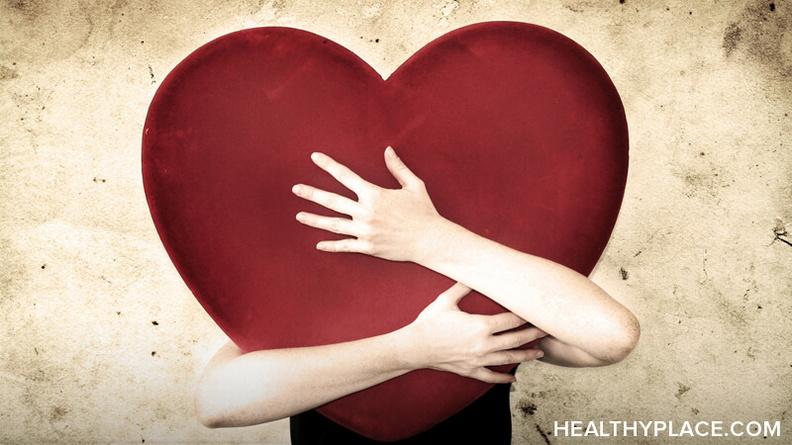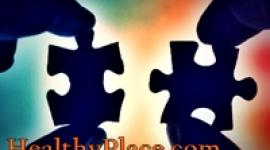Body Image Questionnaire and How to Love Your Body and Yourself

Love Your Body, Love Your Self
Body image dissatisfaction is so epidemic in our society that it's almost considered normal. Recent studies show preschoolers are already exposed to hearing that certain types of foods, especially sugar, might make them "fat." Kids as early as third grade are concerned about their weight. But the most vulnerable are teens. This is the age we are most impressionable and start to develop self-confidence and self-perception. Body shapes are changing rapidly. About half of female teens think they're too fat and almost 50% are dieting. There is a lot of pressure to succeed and fit in. One of the ways to fit in is to have "the perfect body."
Body Image Questionnaire: How do you measure up?
When you look in the mirror what do you see? When you walk past a shop window and catch a glimpse of your body, what do you notice first? Are you proud of what you see, or do you think, "I'm too short, I'm too fat, if only I were thinner or more muscular?" Most people answer negatively. Take the following quiz and see how your Body Image I.Q. measures up. Check the most appropriate answer:
- Have you avoided sports or working out because you didn't want to be seen in gym clothes? Yes___ No ___
- Does eating even a small amount of food make you feel fat? Yes___ No ___
- Do you worry or obsess about your body not being small, thin or good enough? Yes___ No ___
- Are you concerned your body is not muscular or strong enough? Yes___ No ___
- Do you avoid wearing certain clothes because they make you feel fat? Yes___ No ___
- Do you feel badly about yourself because you don't like your body? Yes___ No ___
- Have you ever disliked your body? Yes___ No ___
- Do you want to change something about your body?
Yes___ No ___ - Do you compare yourself to others and "come up short?"
Yes___ No ___
If you answered "Yes" to 3 or more questions, you may have a negative body image. See guidelines under "Tips for Making Peace with Your Body and Yourself" (next page) for help in changing your perception to a more positive one.
Mirror, Mirror
 Girls are overly concerned about weight and body shape. They strive for the "perfect" body and judge themselves by their looks, appearance, and above all thinness. But boys don't escape either. Boys are concerned with the size and strength of their body. There has been a shift in the male body image. Boys live in a culture that showcases males as glamorous "macho" figures who have to be "tough", build muscles and sculpt their bodies - if they want to fit in. They think they have to be a "real" man, but many admit being confused as to what that means or what's expected of them. This confusion can make it harder than ever to feel good about themselves.
Girls are overly concerned about weight and body shape. They strive for the "perfect" body and judge themselves by their looks, appearance, and above all thinness. But boys don't escape either. Boys are concerned with the size and strength of their body. There has been a shift in the male body image. Boys live in a culture that showcases males as glamorous "macho" figures who have to be "tough", build muscles and sculpt their bodies - if they want to fit in. They think they have to be a "real" man, but many admit being confused as to what that means or what's expected of them. This confusion can make it harder than ever to feel good about themselves.
Some sports can contribute to a negative body image. The need to make weight for a sport like wrestling or boxing can cause disordered eating. But other boys says sports make them feel better about themselves. Jon, a 15-year-old, states, "Guys are in competition, especially in the weight room. They say, 'I can bench 215 lbs.' and the other guy says, 'Well I can bench 230 lbs.' If you're stronger, you're better." Daniel, age 16, shares, "Guys are into having the perfect body. But if you feel good about your body, you automatically feel good about yourself."
Most of our cues about what we should look like come from the media, our parents, and our peers. This constant obsession with weight, the size of our bodies and longing for a different shape or size can be painful.
Contributors That Can Make Loving Your Body Difficult
Where do these negative perceptions come from? Here are just a few of the factors contributing to negative perceptions and obsessions about our body:
The media plays a big part. Surrounded by thin models and TV stars, teenage girls are taught to achieve an impossible goal. As a result, many teenage girls intensely dislike their bodies and can tell you down to the minutest detail what's wrong with it. Most teens watch an average of 22 hours of TV a week and are deluged with images of fat-free bodies in the pages of health, fashion and teen magazines. The "standard" is impossible to achieve. A female should look like, and have the same dimensions as Barbie, and a male should look like Arnold Schwarzenegger. Buff Baywatch lifeguards, the well-toned abs of any cast member of Melrose Place or Friends, and music-video queens don't help.
Take a look at the 10 most popular magazines on the newspaper racks. The women and men on the covers represent about .03 percent of the population. The other 99.97% don't have a chance to compete, much less measure up. Don't forget it's a career with these people. They're pros. Many have had major body make-overs and have a full-time personal trainer. Most ads are reproduced, airbrushed or changed by computer. Body parts can be changed at will.
The images of men and women in ads today do not promote self esteem or positive self image. They're intended to sell products. In the U.S. billions of dollars are spent by consumers who pursue the perfect body. The message "thin is in" is sold thousands of times a day through TV, movies, magazines, billboards, newspapers and songs. Advertising conveys the message "You're not O.K. Here's what you need to do to fix what's wrong." Girls and boys believe it and react to it. In a 1997 Body Image Survey, both girls and boys reported that "very thin or muscular models" made them feel insecure about themselves.
Western society places a high value upon appearance. Self-worth is enhanced for those who are judged attractive. Those who are deemed unattractive can feel at a disadvantage. The message from the media, fashion and our peers can create a longing- a longing to win the approval of our culture and fit in at any cost. And that can be disastrous to our self esteem.
Parents can give mixed messages too. Especially if they're constantly dieting or have body or food issues of their own. How we perceive and internalize these childhood messages about our bodies determines our ability to build self-esteem and confidence in our appearance.
The diet/fitness craze is mind boggling. It's not just dieting, it's diet foods, and diet commercials. Everybody's counting fat grams. Listen to the conversation in the lunch room, locker room or on the bus to school. The talk centers around dieting, fat thighs or tight "abs" and how many pounds can be lost with the latest diet. This kind of intense focus on food and fat can lead to abnormal eating habits or - disordered eating - a precursor to eating disorders, which is taking it to the extreme.
Awareness of eating disorders got a big boost in 1995 when Princess Di began talking openly about her struggles with bulimia. Actress Tracy Gold, still struggling with her eating disorder, continues to help others by discussing her eating disorder with the media. Recently many organizations have initiated an effort to expand awareness of eating disorders and promote a positive body image and self esteem.
Body Image, Body Love: Learning to Be Body Positive
Why is a positive body image so important? Psychologists and counselors agree that a negative body image is directly related to self esteem. The more negative the perception of our bodies, the more negative we feel about ourselves.
Being a teenager is a time of major change. Besides the obvious changes in size and shape, teens are faced with how they feel about themselves. Body image and self esteem are two important ways to help promote a positive image.
When most people think about body image they think about aspects of physical appearance, attractiveness, and beauty. But body image is much more. It is the mental picture a person has of his/her body as well as their thoughts, feelings, judgments, sensations, awareness and behavior. Body image is developed through interactions with people and the social world. It's our mental picture of ourselves; it's what allows us to become ourselves.
Body image influences behavior, self esteem, and our psyche. When we feel bad about our body, our satisfaction and mood plummets. If we are constantly trying to push, reshape or remake our bodies, our sense of self becomes unhealthy. We lose confidence in our abilities. It's not uncommon for people who think poorly of their bodies to have problems in other areas of their lives, including sexuality, careers and relationships.
A healthy body image occurs when a person's feelings about his/her body is positive, confident and self caring. This image is necessary to care for the body, find outlets for self-expression, develop confidence in one's physical abilities and feel comfortable with who you are.
Self esteem is a personal evaluation of one's worth as a person. It measures how much you respect yourself:
- physically: (how happy you are with the way you look)
- intellectually (how well you feel you can accomplish your goals)
- emotionally (how much you feel loved)
- morally (how you think of yourself as a person)
Self esteem, self confidence and self respect are all related. Self esteem is also defined as the judgments a person makes about themselves and is affected by self confidence and respect. Self confidence is believing in our ability to take action and meet our goals. Self respect is the degree to which we believe we deserve to be happy, have rewarding relationships and stand up for our rights and values. All these factors affect whether or not we will have a healthy body image.
How you see yourself affects every part of your life. High self esteem makes for a happier life. It allows you to be your own person and not have others define you.
To begin to achieve healthy images of ourselves and our bodies is a challenge. Here are some things you can do to start feeling better about your body and yourself:
Tips for Making Peace with Your Body and Yourself
When you look in the mirror, make yourself find at least one good point for every demerit you give. Become aware of your positives.
Decide which of the cultural pressures - glamour, fitness, thinness, media, peer group - prevent you from feeling good about yourself. How about not buying fashion magazines which promote unrealistic body images?
Exercise gets high marks when it comes to breeding positive body feelings. It makes us feel better about our appearance, and improves our health and mood.
Emphasize your assets. You've got lots. Give yourself credit for positive qualities. If there are some things you want to change, remember self-discovery is a lifelong process.
Make friends with the person you see in the mirror. Say, "I like what I see. I like me." Do it until you believe it.
Question ads. Instead of saying, "What's wrong with me," say, "What's wrong with this ad?" Write the company. Set your own standards instead of letting the media set them for you.
Ditch dieting and bail on the scale. These are two great ways to develop a healthy relationship with your body and weight.
Challenge size-bigotry and fight size discrimination whenever you can. Don't speak of yourself or others with phrases like "fat slob," "pig out," or "thunder thighs."
Be an example to others by taking people seriously for what they say, feel, and do rather than how they look.
Accept the fact your body's changing. In teen years, your body is a work in progress. Don't let every new inch or curve throw you off the deep end.
You know you are successful when you can look in the mirror and instead of asking, "What's wrong with it," and say, "There's nothing really wrong with me." And little by little you'll find you can stop disliking your body. When Clister Smith, age 15, was asked how we can like our bodies better he says, "Quit worrying about what others think of you. If you want to change your body, do it for yourself, and not anyone else."
This is the starting point. It is from this new way of looking at a problem that we can begin to feel better about ourselves. Make this the time to accept the natural dimensions of our bodies instead of drastically trying to change them. We can't exchange our bodies for a new one. So the best thing is to find peace with the one we have. Your body is where you're going to be living the rest of your life. Isn't it about time you made it home?
Cindy Maynard, M.S., R.D. is a health & medical writer and registered dietitian. Copyright, 1998.
next: Eating Disorders Fear of Fat: Why Images of Overweight Women are Taboo
~ eating disorders library
~ all articles on eating disorders
APA Reference
Staff, H.
(2009, January 12). Body Image Questionnaire and How to Love Your Body and Yourself, HealthyPlace. Retrieved
on 2025, April 15 from https://www.healthyplace.com/eating-disorders/articles/body-image-questionnaire-and-how-to-love-your-body-and-yourself



